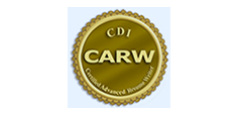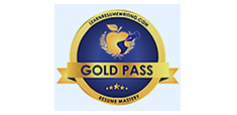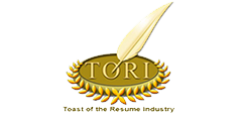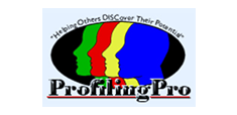 Are you having difficulty wording your resume to powerfully document your foreign language skill? Still confused about how to write your resume to include foreign language skills, experiences, and accomplishments?
Are you having difficulty wording your resume to powerfully document your foreign language skill? Still confused about how to write your resume to include foreign language skills, experiences, and accomplishments?
As more and more US businesses enter the global marketplace, they are looking for employment candidates who are fluent in foreign languages. The same is true of foreign enterprises that are doing business with US companies and consumers. This demand provides opportunities for job seekers with foreign language abilities to position themselves in a unique way.
How you state your foreign language ability on your resume and job application, is very important. Are you frustrated with how to write a resume for foreign language skills in a powerful yet truthful way? We give suggestions for how to keep your foreign language skill relevant, and honest, and how to write WIIFM bullet points that will validate your skill and experience in a more powerful way.
Relevancy
When deciding if you should include your foreign language ability on your résumé, the number one question you must consider is; does this language skill directly apply to the company, its clients, and customers or to the job announcement?
Relevancy is very important when writing your résumé. It makes sense to include it if the language skill is relevant to your job search or future career. In situations where it is not relevant, you might better serve your job search by featuring other skills that will add value to you as a potential employee.
For example, suppose that you are fluent in Cantonese and the companies you want to work for – have Asian clients or facilities in Cantonese-speaking regions. Then it is important to document this skill on your resume. If it does not directly relate to company business, locations, or your career goals, then it may be best to leave this information off your resume.
Determining Language Proficiency
Determining language proficiency for job applications or resumes, in the United States, can be difficult because there are no universal standards of measurement.
Education.com states that “Language proficiency is a measurement of how well an individual has mastered a language. Proficiency is measured in terms of receptive and expressive language skills, syntax, vocabulary, semantics, and other areas that demonstrate language abilities. There are four domains of language proficiency: reading, writing, speaking, and listening. Language proficiency is measured for an individual by each language, such that the individual may be proficient in English and not proficient in another language.”[i]
The following information should help you to assess your language proficiency level so that you can more accurately represent it on your resume and job application. This overview of common language terms and possible definitions was compiled from numerous sources.
- Basic Knowledge – This is an elementary level equivalent to 101 or 102 college courses. Knowledge of vocabulary words, ability to speak simple phrases or sentences, but still have some difficulty understanding native speakers and performing elementary reading and writing skills.
- Conversant – An intermediate level where the speaker is able to handle a variety of uncomplicated, basic, and communicative tasks and social situations. Can talk simply about their self and family members. Can ask and answer questions and participate in simple conversations on topics beyond the most immediate needs.[ii] Reading and writing skills may or may not be at the same level.
- Proficient – The word proficient, means a well-advanced skill level. In terms of language, the “proficient” label can refer to someone who is very skilled in the use of a language but who uses the language less easily and at a less-advanced level than a native or fluent speaker.[iii] Caution: this term is overused, and many people don’t bother to use it to define their true level of ability.
- Fluent – A high level of language proficiency; in this instance, we are referring to the proficiency of a foreign language or another learned language. At the fluent level, a speaker will have fluid speech as opposed to halting use. Generally, a person who is fluent in a foreign language will show mastery in the following areas:
- Read: the ability to read and understand texts written in the language
- Write: the ability to formulate written texts in the language
- Comprehend: the ability to follow and understand speech in the language
- Speak the ability to produce speech in the language and be understood by its speakers.[iv]
- Native Language / Native Speaker – The language that is your primary language. This is usually learned during childhood and is considered your “mother-tongue.” A native speaker is more than fluent—he correctly and easily uses his first language, in a proper sense as well as understands and can use colloquialisms, idioms, and slang.
- Bilingual – The dictionary definition of “bilingual” is “using or able to use two languages with equal fluency.” [v] Unless all languages are spoken with equal strength, the term “bilingual” really doesn’t apply.
Proficiency Assessments and Tools
The American Council for the Teaching of Foreign Languages has developed language proficiency guidelines, and you can learn more about them through this link.
The Virginia Commonwealth University, in association with Patricia Cummins and Lulú (María) De Panbehchi, produced the Global Language Portfolio. This program includes free self-assessment tools for foreign language ability.
- Global Language Portfolio: Reading
- Global Language Portfolio: Writing
- Global Language Portfolio: Listening
- Global Language Portfolio: Spoken
The Interagency Language Roundtable has developed assessment scales as well; you can reach them through this link: Interagency Language Roundtable Scale.
The European community has developed proficiency evaluations for foreign languages. It may be to your career advantage to complete a program, like this, that will qualitatively state your language proficiency level and provide documents to validate it. An online search will help you to find programs in which to participate.
How to Write Resume Foreign Language Skills
It is essential to know how to write foreign language skills, how to define them, and then phrase them in powerful ways that add value to prospective employers. Once you decide to list your language proficiency on your resume, keep in mind that just making a blanket statement that you are proficient in a specific language is NOT noteworthy, especially if it does not benefit the prospective employer. It will better serve you to include accomplishments that relate to how you use your foreign language ability in a work environment. Here are a few examples:
- Translate written communication from Japanese into English for sales inquiries, product queries, and general email questions. Dispense the transcripts to the specific persons or departments for their answers. Replied in Japanese, translating from the English responses – several times per month.
- Perform as a spoken translator during quarterly international teleconferences and semi-annual meetings.
- Daily, use my ability to read, write, speak and comprehend Taiwanese while interacting with adult English as Second Language (ELS) students in a classroom setting.
Your Language Skill Will Be Assessed During the Hiring Process
Use caution, and DO NOT overstate your abilities on your resume or job application. During the hiring or interview process, you will be evaluated on your language proficiency. Many times, this will take place during the job interview. The hiring manager or a member of the interview panel may begin to speak to you in a foreign language and ask you questions. They will know immediately if you are not able to perform at the level you stated on your resume.
During the interview, you could be asked to read a foreign text out loud and then interpret it into English or vice versa. The interviewers may require you to provide a written foreign language sample based on your reading or listening comprehension during the interview.
Be Encouraged
Having advanced skills and fluency in a foreign language is a valuable asset in the international business community and in government service. Remember to keep your foreign language skill relevant and show prospective employers how you can add value to their organization with your skill. Accurately stating your proficiency and demonstrating how you are able to use that foreign language in employment situations – will cause you to shine brighter and help set you apart from other candidates. It may also garner higher wages and more prestigious positions. Always show the employer how it will benefit them, and you will benefit when they offer you a new job!
Are you having difficulty wording your resume to powerfully document your foreign language skill? Still confused about how to write foreign language skills, experiences, and accomplishments for your resume?
Radiant Resume Services helps clients shine brighter and reach their job search and career goals faster by providing career and communication assessments, professionally written and targeted resumes, and LinkedIn profiles that showcase skills, abilities, and accomplishments in ways that get the attention of potential employers. We provide job search and interview strategies as well as career coaching. Contact us today, and let us help YOU to SHINE brighter and reach your job search and career goal FASTER!








[…] How to Write Resume Foreign Language Skills […]